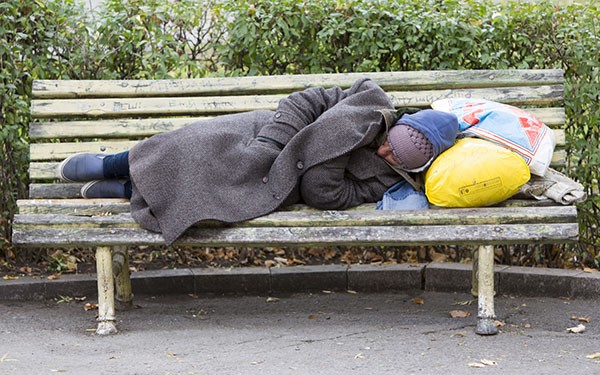By Charlotte Webster-
Almost a quarter of households registered as homeless in many parts of the UK last summer were in work, according to new figures
It means a number of people in full time work had no place they could call home, despite being in fulltime employment.
Many of those in work have been unable for to find accommodation due to bad credit checks or the requirement for a guarantor by estate agents all over the country.
Homeless charity Crisis said it is “unacceptable” that there are thousands of people in paid work but without a home across England during the coronavirus pandemic, and called for long-term investment in social housing.
Ministry of Housing, Communities and Local Government data shows 323 households were entitled to help from Southampton City Council between July and September – 204 of which were assessed as homeless and 119 at risk of becoming so.
Of these, 26 had at least one person working full-time, and 47 part-time – 23% of all homeless households in the area whose employment status was known.
There was also one household where the main applicant was a student, or in training, and four where they were seeking work.
In most parts of England, almost a quarter (15,590) of households assessed as homeless had full-time or part-time jobs between July and September last year.
Crisis said the situation could have been even worse without the uplift in Universal Credit and the furlough scheme, but that people will continue to struggle when restrictions are eased.
Jon Sparkes, chief executive of Crisis, said: “It’s unacceptable that thousands of people in England cannot afford a place to live, despite being in work.
“We are calling on the Westminster Government to provide emergency grants and loans to renters who have been forced into arrears by the pandemic and extend the benefit cap grace period until the end of the pandemic.
“But we must not lose sight of the fact that homelessness amongst workers has existed long before Covid-19 and to end it once and for all, we need long-term investment in affordable housing.”
In Southampton, 128 households (41%) owed help by the council between July and September had at least one member registered as unemployed, not seeking work, or at home.
A further 81 (26%) could not work due to illness or disability and five (2%) were retired.
Housing charity Shelter said less than half of households found to be homeless nationwide were not helped to find a home – showing the impact of a lack of suitable social housing.
The three most common triggers of homelessness in England between July and September were households no longer being able to stay with families and friends (33%), the loss of a private tenancy (14%) and domestic abuse (11%).
Polly Neate, chief executive of Shelter, said thousands of people are struggling to survive the “never-ending nightmare” of the pandemic, as a result of decades of “political neglect”.
A spokeswoman for the British Government said it had provided “unprecedented support” for renters during the pandemic through the evictions ban and welfare support.
She added that over £700 million was being provided to tackle homelessness and rough sleeping this year, and over £12 billion in affordable housing over five years.




